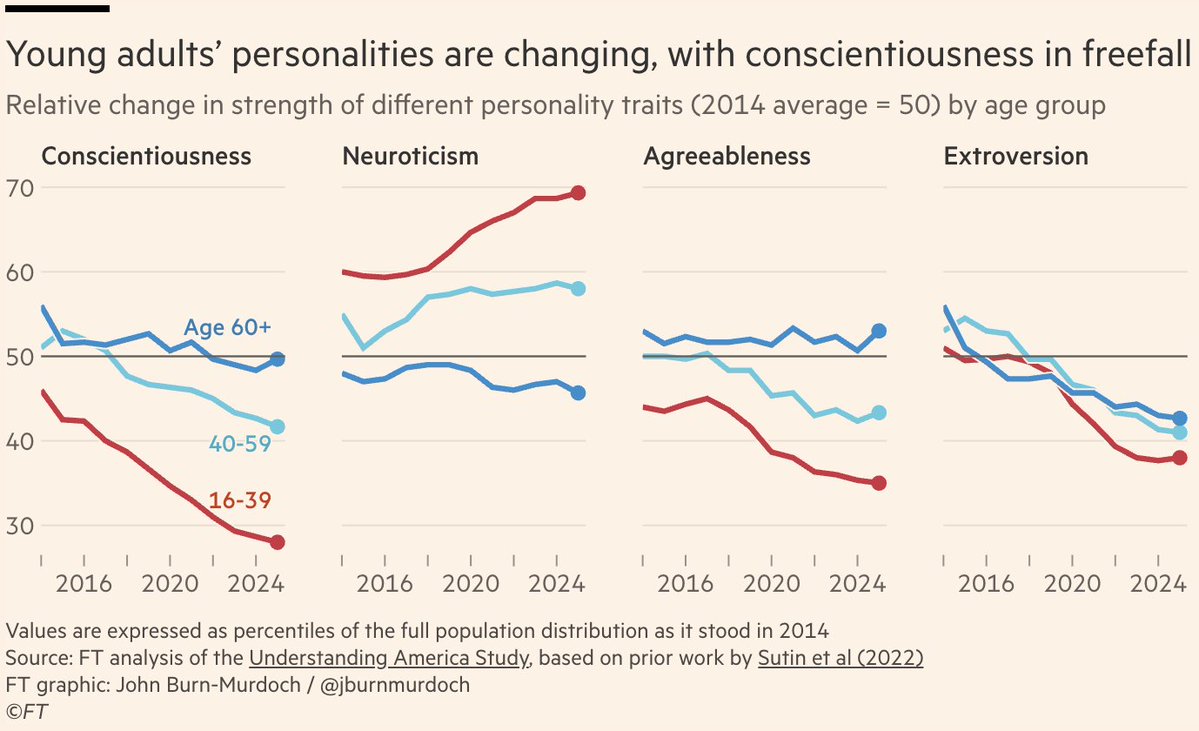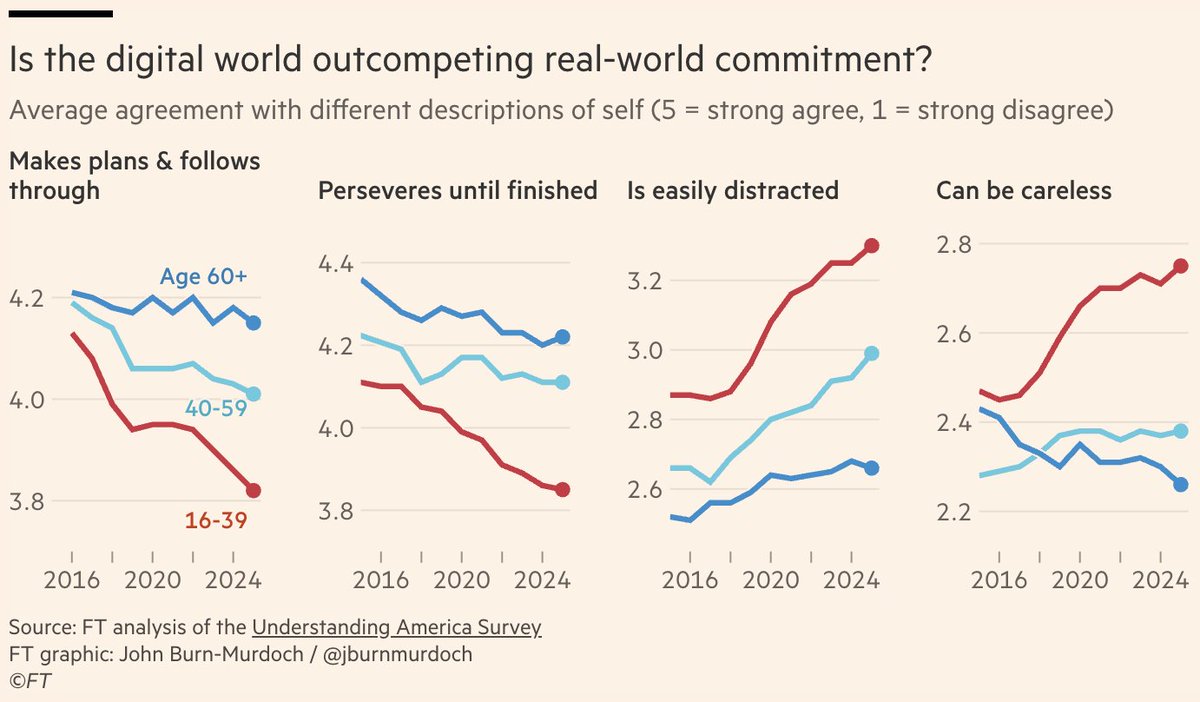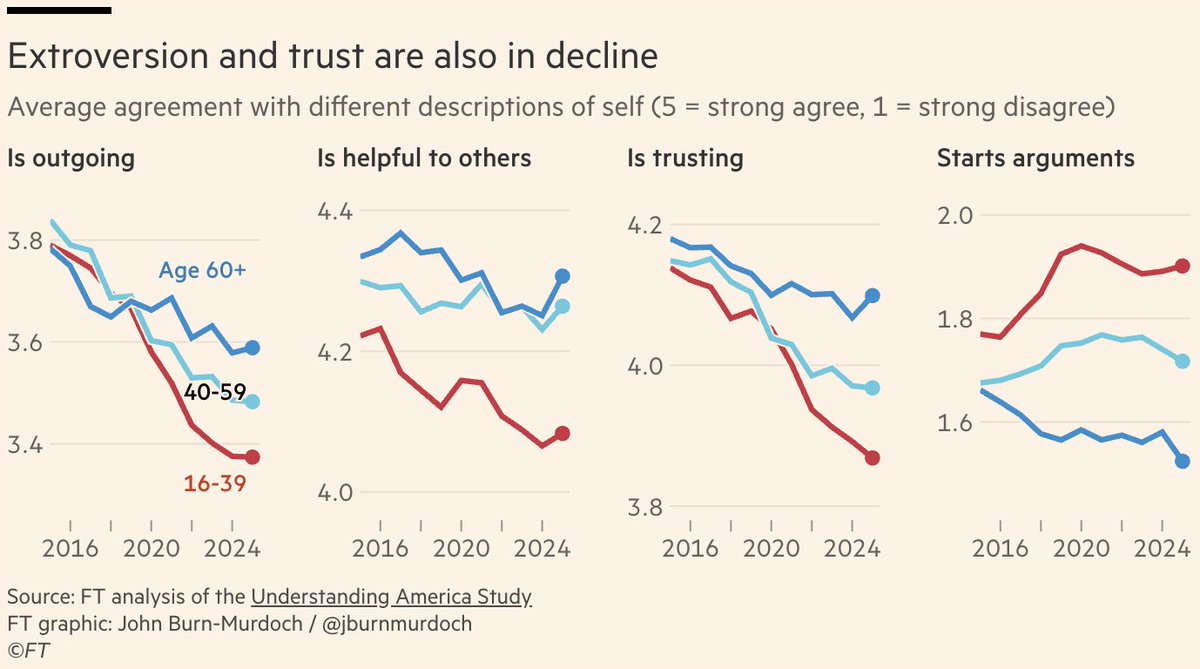What are the key attributes that shape the length and quality of our careers, relationships and lives more broadly? The socio-economic environment we grow up in certainly has a substantial influence, with parental prosperity acting as a propellant or a key to unlock crucial doors. Cognitive abilities are another obvious one: they enable better decision-making in all aspects of life. But another factor often gets less credit despite being just as important: personality.
In fact,
studies consistently find that traits such as conscientiousness (the quality of being dependable and disciplined), emotional stability or agreeableness have a stronger link with
professional success, relationship durability and longevity than the links between those outcomes and someone’s intelligence or socio-economic background.
Of all personality types, conscientious people tend to fare best on a number of key measures. They live the longest, have the most career success and are less likely to go through divorce. They even manage to
hold down a job during recessions. Intuitively, this makes sense. Life isn’t just about knowing what you should do, or having the resources to do it, it’s about following through. Being motivated and persistent is a huge help.
Some studies suggest the advantage of conscientiousness is growing over time, and it’s easy to imagine why. When contemporary daily life is full of
temptations — from always-on mobile internet and the lures of social media and online gambling, to hyper-palatable foods — the ability to ignore it all and put long-term wellbeing ahead of short-term kicks becomes a superpower.
Generative artificial intelligence could supercharge this dynamic. An industrious student who is not deterred by a
challenge might use a large language model as a personal tutor to strengthen their knowledge of a concept; their less conscientious counterpart might task the same LLM with writing their essay, foregoing knowledge acquisition altogether.
All this makes it disconcerting that levels of conscientiousness in the population appear to be in decline. Extending a pioneering
2022 US study which identified early signs of a drop during the pandemic, I found a sustained erosion of conscientiousness, with the fall especially pronounced among young adults.
Digging deeper into the data, which comes from the
Understanding America Study, we can see that people in their twenties and thirties in particular report feeling increasingly easily distracted and careless, less tenacious and less likely to make and deliver on commitments.
While a full explanation of these shifts requires thorough investigation, and there will be many factors at work, smartphones and streaming services seem likely culprits. The advent of ubiquitous and hyper-engaging digital media has led to an explosion in
distraction, as well as making it easier than ever to either not make plans in the first place or to abandon them. The sheer convenience of the
online world makes real-life commitments feel messy and effortful. And the rise of time spent online and the attendant decline in face-to-face
interactions enable behaviours such as “
ghosting”.
Collapsing conscientiousness is not the only personality shift visible in the data. Neuroticism — a function of the much-discussed increase in anxiety — has risen almost as much. Young adults also report feeling less amiable and outgoing. There’s a particularly steep drop shown in the latter during the pandemic, when young people bore the brunt of restrictions on contact in order to protect others from harm. In fact, long the most
extroverted group in society, young adults are now the most introverted.
While the terminology of personality can feel vague, the science is
solid.
Decades of research consistently finds that all these shifts are in the direction associated with negative outcomes down the line. Life is full of challenges. A less committed, less connected and more easily distressed cohort will navigate them less well.
But while the trends are undoubtedly troubling, we shouldn’t be fatalistic. Unlike parental background and genetic make-up, there is a wealth of
evidence that personality is malleable — what has been eroded can be rebuilt. Conscientiousness will separate those who just survive from those who thrive in the 21st century. We can each decide which half of that divide we fall on — but ironically that will take some dedication.
Data sources and methodology
All analysis was carried out independently using data from surveys administered by the
Understanding America Study, which is maintained by the Center for Economic and Social Research (CESR) at the University of Southern California.





